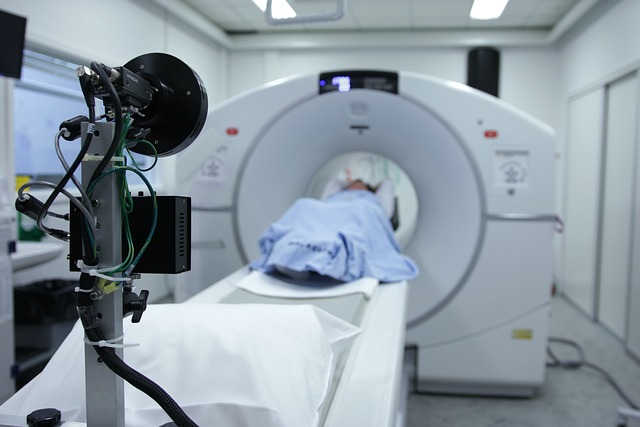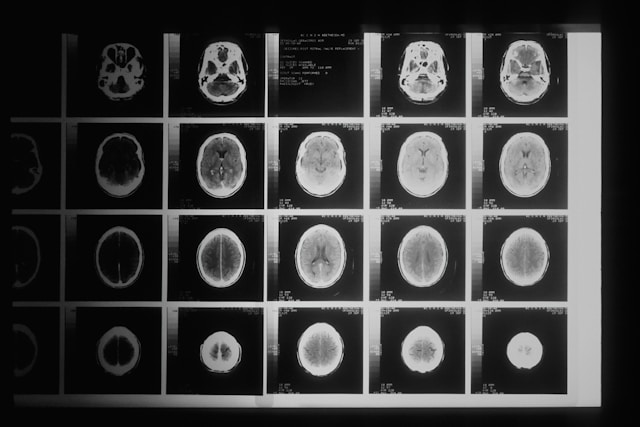CT or computed tomography scans provide medical practitioners with a detailed image of the body’s internal structure. This can help them offer a more accurate diagnosis for the proper treatment of a patient. This article highlights the benefits of CT scans for a comprehensive health assessment.

Detailed Imaging
A significant benefit of CT scans is that this technique can offer detailed imaging that can help doctors in various ways. It can produce high-resolution images with detailed views of bones, organs, blood vessels, and tissues. This level of detail is critical for accurate diagnosis. Rest assured that if you need a CT scan report, there are now various clinics that can accommodate the different needs of patients. In this case, you can enter the keywords “CT scan near me” in search engines to find a clinic offering this service within your vicinity. From there, you will be provided with a list of sites to visit to find a clinic offering CT scan services. Most hospitals also provide a CT scan, but remember that you will likely need a recommendation from your doctor before going through the procedure.
Non-invasive
CT scans are also non-invasive, meaning they do not require surgical procedures to capture images, making them a safer option for patients. Unlike traditional exploratory surgeries or more invasive diagnostic procedures, CT scans involve no incisions or insertion of instruments into the body. This significantly reduces the risk of complications such as infections or bleeding and generally allows for a quicker recovery. Since CT scans are non-invasive, the procedure is usually comfortable for patients. They only need to lie still on a table while the scanner takes images, which minimizes anxiety and physical discomfort compared to invasive procedures.
Quick and Efficient
When you undergo a CT scan, expect the imaging process to be quick, often completed in a few minutes. This is essential in emergencies where time is critical for diagnosis and treatment. CT scans are particularly useful in emergency settings for assessing internal injuries and bleeding, especially after accidents or trauma. CT scanners are widely available in hospitals and diagnostic centers, making this advanced imaging technology more accessible to patients. This accessibility helps in timely diagnosis and treatment planning.
Versatile
Another significant benefit of CT scans in the medical field is that this technique can diagnose various conditions, including bone fractures, cancers, blood clots, infections, and internal injuries. For orthopedic assessments, CT scans provide clear images of bone structures and can detect fractures, bone tumors, and joint abnormalities with great precision, aiding in effective treatment planning. CT scans are also highly sensitive and can detect minor abnormalities and lesions that may not be visible with other imaging techniques, such as standard X-rays or ultrasounds. This enables early diagnosis and intervention, which is crucial for successful treatment outcomes.
Screening and Early Detection
Many healthcare practitioners rely on CT scans for early detection of diseases, such as lung cancer, allowing for timely intervention and better prognosis. This is because CT scans can be tailored to focus on specific areas of interest. For instance, a contrast-enhanced CT can provide more detailed images of blood vessels and tissues, helping to differentiate between healthy and diseased tissues more effectively. CT scans often eliminate the need for exploratory surgery by providing precise and detailed internal images. This means less risk, less pain, and faster patient recovery times.
Fosters Accurate Diagnosis
The detailed images provided by CT scans help doctors accurately diagnose conditions and plan appropriate treatments, reducing the likelihood of misdiagnosis. CT scans are also effective in diagnosing neurological conditions, such as strokes, brain tumors, and brain injuries, providing critical information for treatment. Additionally, CT scans are particularly valuable when assessing lung conditions such as pneumonia, tuberculosis, and interstitial lung disease. They can also detect pulmonary embolisms and life-threatening blood clots in the lungs.
Furthermore, through abdominal and pelvic imaging, CT scans can help doctors detect kidney stones, appendicitis, and tumors. They can also catch inflammation, infections, and other abnormalities in organs like the liver, pancreas, and intestines. With this information, doctors can provide their patients with a more accurate diagnosis from which the treatment plan will be based.
Guides Surgical Procedures
Detailed images from CT scans assist surgeons in planning complex surgeries, ensuring better outcomes and reducing risks. For instance, with CT scan information, doctors can assess heart diseases, such as coronary artery disease, by visualizing the heart and blood vessels, helping in planning interventions like angioplasty. CT scans can also guide surgeons by providing real-time images during minimally invasive surgical procedures, such as biopsies. CT scans can be safely used across different age groups, from children to older people, making them a versatile diagnostic tool. Pediatric protocols and lower radiation dose options ensure safety for younger patients.
Monitor Disease Progression
Finally, when it comes to treatment monitoring, CT scans help observe the progression of diseases, such as cancer, allowing doctors to evaluate the effectiveness of treatments and make necessary adjustments. Some CT scanners offer advanced functional imaging capabilities, such as CT perfusion scans, which can determine blood flow to various organs and tissues. This is particularly useful in stroke assessment and cancer evaluation.
The technology can also be combined with other imaging modalities to provide comprehensive diagnostic information. PET-CT scans, for instance, are highly effective in cancer diagnosis and monitoring. More importantly, while advanced imaging technologies can be expensive, the comprehensive diagnostic information provided by CT scans can lead to more accurate diagnoses and more effective treatment plans. This can ultimately reduce the need for multiple tests or exploratory surgeries, lowering healthcare costs.

CT scans offer various benefits for a comprehensive health assessment because of the detailed images this technique generates. It is also non-invasive, quick, efficient, and versatile, making it an excellent option for healthcare practitioners to use in screening and early detection. Doctors can make more accurate diagnoses and be guided in their surgical procedures with a CT scan. They can also monitor disease progression through the details provided by a CT scan. Indeed, this technological advancement in the medical field brought about several benefits that aid healthcare professionals in delivering exceptional care.












